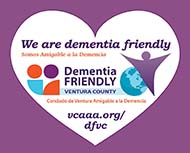
We’ve all heard of arthritis, but did you know that arthritis affects one in five adults which is nearly 53 million people? Arthritis is a painful disease caused by a breakdown of the cartilage in the joints and makes simple daily tasks like opening a door or walking up stairs incredibly difficult and painful.
The two most common forms of arthritis in older people are Osteoarthritis and Rheumatoid Arthritis, with OA being about 90% more common than RA. OA is caused when the cartilage in the joints begins to wear away and the bones rub together. It occurs most frequently in the hands, neck, lower back and in larger weight bearing joints such as hips and knees. RA is an autoimmune disease that causes the body to attack itself, causing the lining of joints to become inflamed and painful.
Here are a few ideas of ways to help manage you or your loved ones arthritis symptoms.
Help Protect Your Joints with PT and OT
Arthritis sufferers often have stiff joints from avoiding certain movements that cause pain. Physical Therapists can teach patients how to work out stiffness without further damaging joints. Physical therapy is also very beneficial after an injury from a fall or after a surgery like artificial joint replacement. Occupational Therapists can teach patients who suffer with arthritis pain ways to reduce strain on joints during their daily activities. OT’s also can make recommendations for home modifications or assistive devices that can help reduce pain during daily tasks. Assisted offers PT & OT services – check out our Home Health Services page to learn more.

Use Alternative Movements to help Arthritis
A person with arthritis should always be thinking about their joints and how they are using them, even when they are symptom free. Different ways of doing things should be considered, for example, instead of lifting a heavy pan, slide it across the counter; use your shoulder to open a door instead of your arm; and hold items in the palm of your hands, not with your fingers.
Get Physical and Manage Weight
It’s important for arthritis sufferers to maintain a healthy weight and is recommended that they follow a physician-prescribed exercise program. Added weight puts additional stress on joints which can exacerbate pain and inflammation. Not only is exercise good for reducing weight, but it also helps strengthen muscles around the joints to protect them from further damage. Exercises like walking, swimming and cycling can be great options for added energy and reducing pain. Since RA causes stiffness in the morning more often than other times of the day, try taking a shower to warm up your joints and stretch them out to loosen you up for your day. Be sure to check with your doctor before starting any exercise and most importantly, know your limits.

Eat More Omega-3s
Studies have found that people who suffer with RA may benefit from the inflammation-fighting omega-3 fatty acids. Try to increase your intake by adding fish like wild salmon and tuna to your weekly meal plan and reap the benefits of added Omega-3. Check out our blog for more information eating well for seniors.

Try Yoga
Yoga is a great physical practice for arthritis sufferers. With its emphasis on stretching and whole-body well-being, those suffering from arthritis can benefit both mentally and physically from practicing yoga. Check out our blog for more low impact exercises for seniors. As always, check with your doctor before starting any exercise regimen.
See the Doctor
An arthritis patient’s doctor can prescribe various medications that can help with the pain and swelling caused by arthritis. From acetaminophen which can help ease arthritis pain, to NSAIDs like ibuprofen, naproxen and ketoprofen that help reduce inflammation; the patient’s doctor can guide and prescribe the best options for arthritis pain relief.

Don’t Forget About Your Eyes
RA is known to affect the eyes and can cause complications that may lead to blindness. Symptoms may include: pain, blurred vision, redness and light sensitivity. Get your eyes checked regularly and speak to your eye doctor for options like anti-inflammatory eye drops that can help RA-related eye conditions.
If you or a loved one suffers from arthritis, Assisted Home Health & Hospice can help. From assistance with daily tasks like meal prep and light chores to Physical and Occupational Therapy following a joint surgery, our team of healthcare professionals can help those suffering from arthritis to manage their disease in the comfort of their own home. To learn more, call 800-949-6555 or visit us at www.assisted1.com.







